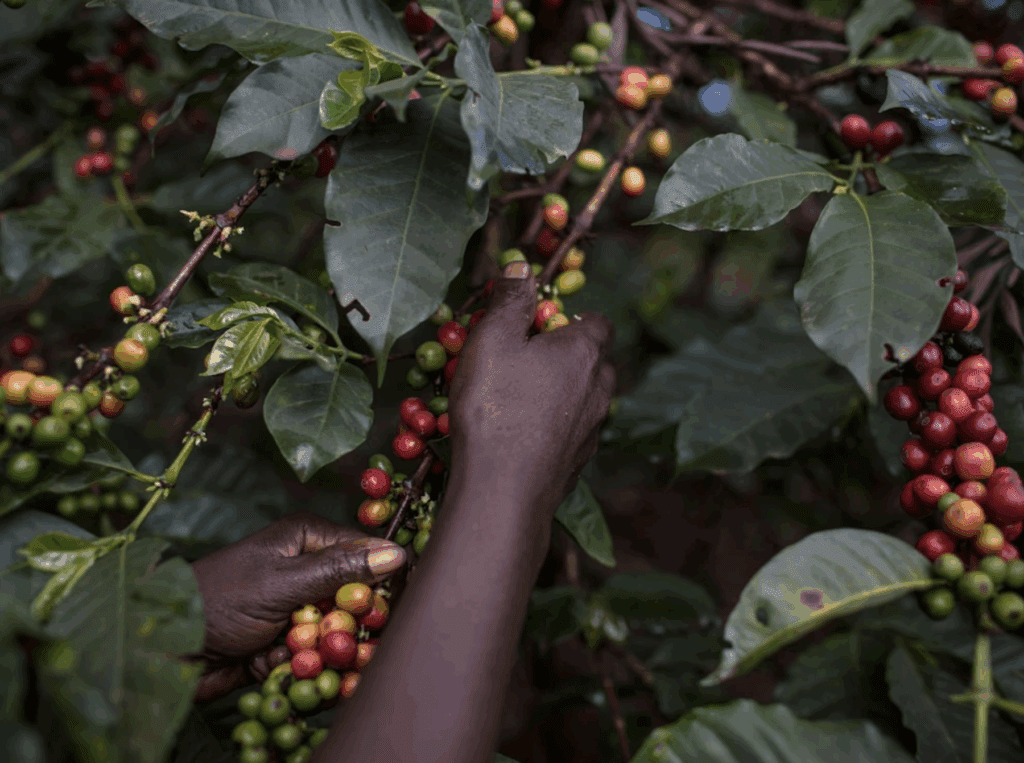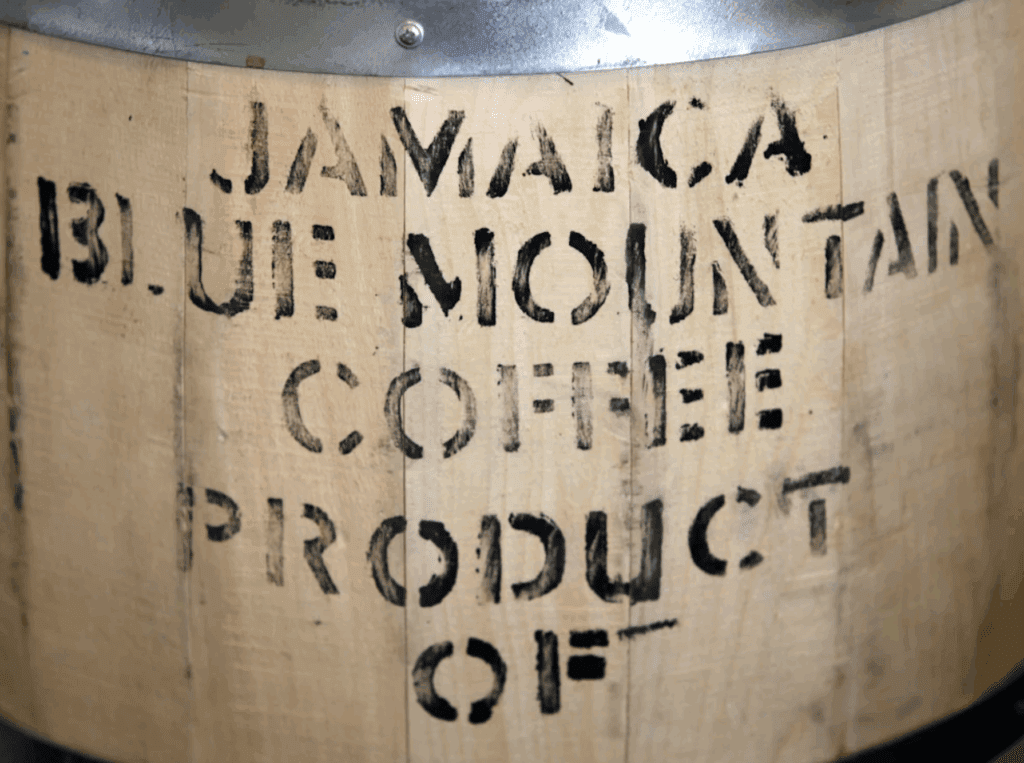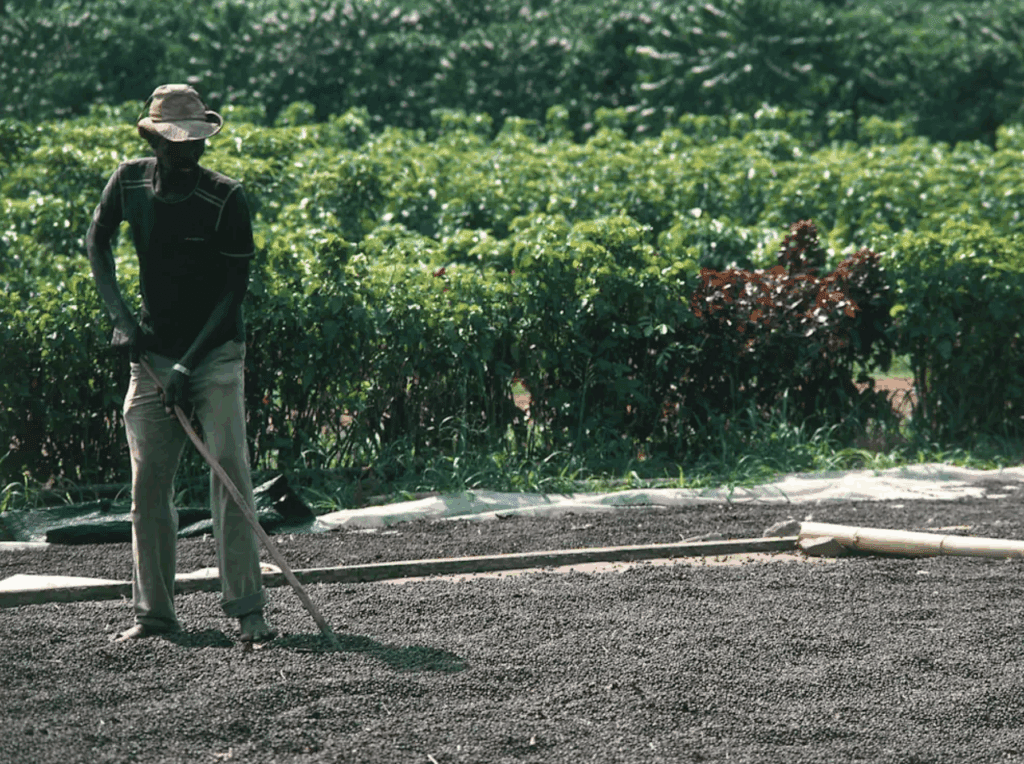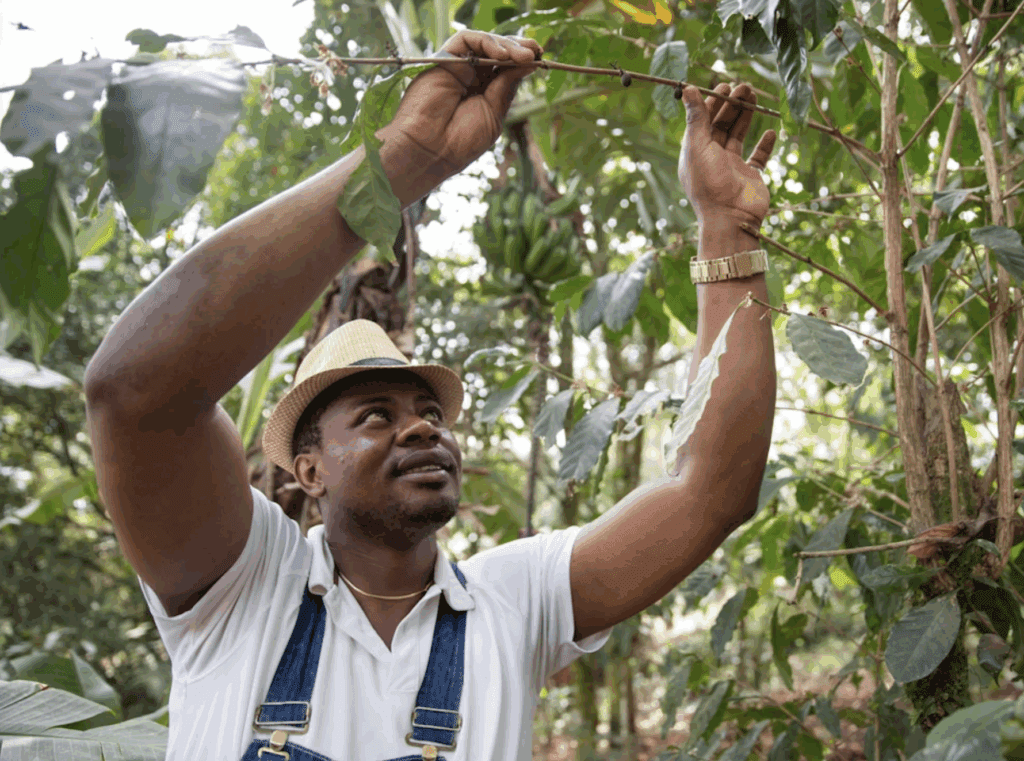As seen in Perfect Daily Grind
- Between 1800 and 1840, Jamaica became one of the largest coffee producers in the world – producing an estimated 70,000 tonnes per year.
- However, following the abolition of slavery, the island’s coffee production declined significantly, and its coffee sector underwent a complete restructuring.
- Today, Jamaica is renowned for its Blue Mountain coffee, one of the most sought-after and expensive coffees in the world.
- But many smallholder producers struggle to keep up with the growing demand, prompting key players in the market to help invest in innovative production models, strengthened farmer partnerships, and modernised processing techniques.
In the misty peaks of Jamaica’s Blue Mountains, a quiet revolution is transforming one of the world’s most prestigious coffee origins.
While Jamaica has long commanded higher prices in the global market, the country’s coffee sector is undergoing significant changes that promise to reshape how it reaches consumers worldwide.
As specialty coffee markets expand and new consumer demographics emerge, Jamaica’s traditional coffee sector is adapting through innovative production models, strengthened farmer partnerships, and modernised processing techniques that honour the island’s coffee heritage while meeting contemporary market demands.
To learn more, I spoke to Peter Thomas at Blue Mountain Estates Coffee.

Complex Yet Resilient: A History of Coffee in Jamaica
Jamaica’s coffee sector carries the weight of a complex and often difficult history that mirrors the broader colonial legacy of the Caribbean region.
When the island was under British colonial rule in the 18th century, coffee cultivation flourished to such an extent that Jamaica became one of the world’s biggest coffee producers. By 1790, the colony had established itself as a major economic force in the global coffee trade, with vast plantations operating across the island.
However, the abolition of slavery in 1834 significantly altered Jamaica’s agricultural landscape, leading to a substantial decline in large-scale coffee production.
Extensive estates were gradually divided and redistributed, with many rented or sold to smaller operators. This transition marked the beginning of Jamaica’s transformation into a predominantly smallholder coffee economy – a characteristic that continues to define the sector today.
Despite these historical upheavals, Jamaica’s coffee industry has demonstrated remarkable resilience.
“Coffee has a long – and, like most agriculture in the Caribbean, once challenging – history in Jamaica, though the industry is a source of great pride for the island today,” says Peter, the general manager at Blue Mountain Estates Coffee, an exporter specialising in Jamaican coffee which focuses solely on direct trade relationships.
Today, the island produces one of the world’s most sought-after coffees: Jamaica Blue Mountain. Grown on the island’s highest peaks, this coffee’s scarcity and prestige have maintained its reputation for exceptional quality, commanding premium prices that exceed those of most coffee origins.
Currently, approximately 80% of Blue Mountain farms span less than five acres, with coffee production distributed among roughly 8,270 farmers across the island. Nearly 6,000 of these farmers cultivate coffee specifically in the Blue Mountain region, working within just 14,000 acres designated for certified Blue Mountain coffee production.
This fragmented structure, while preserving traditional methods and community ownership, has also created barriers to modernisation and market access that innovative producers are now working to address.

Why Jamaican Blue Mountain Coffee Became So Popular
The exceptional reputation of Jamaica Blue Mountain coffee stems from a combination of geographical advantages, rigorous quality standards, and generations of cultivation expertise.
Grown exclusively in the Blue Mountains at elevations between 3,000 and 5,500 feet, this coffee benefits from ideal growing conditions, including rich volcanic soils, consistent rainfall patterns, and cool temperatures that slow cherry maturation, resulting in denser beans with complex flavour profiles.
The exclusivity factor cannot be overstated; Jamaica produces less than 0.01% of the world’s total coffee supply. Certified Jamaican Blue Mountain coffee is protected under the World Trade Organisation’s Geographical Indication status, safeguarding both quality standards and cultural heritage while ensuring it maintains its position as one of the world’s most highly prized coffee exports.
Global demand continues to intensify, particularly in established markets like Japan, which has historically imported approximately 70% of Jamaica’s Blue Mountain production. However, emerging markets, including China and the United Arab Emirates, are showing increasing appreciation for luxury coffee products, creating new commercial opportunities while intensifying competition for Jamaica’s limited supply.
“Our business model is tailored to fulfill a growing demand in the region, especially as key markets, such as Asia, exhibit an increasing appetite for specialty coffee,” Peter says.
Traditional challenges persist across the sector, with many producers struggling to meet required export volumes while keeping pace with international innovation standards. This supply-demand imbalance has created opportunities for forward-thinking operations that can scale production sustainably while maintaining the quality standards that define Blue Mountain coffee.
For instance, Blue Mountain Estates Coffee has over 1,300 acres of land, positioning itself as one of the largest employers in Portland Parish. It has also established strong partnerships with hundreds of smallholder producers to meet this growing international demand, even when it exceeds individual farm production capacity.
“The global coffee market is increasingly segmented into specialty, certified, and premium coffee options, which has changed the traditional workings of the worldwide value chain,” Peter says.
Producers are making substantial investments in production infrastructure, processing facilities, and export operations, helping drive overall quality improvements across the Blue Mountain region. Blue Mountain Estates Coffee, for instance, is a lead sponsor of the Jamaica Coffee Growers Association, significantly improving the livelihoods of the island’s farmers while ensuring a steady global supply of Jamaica Blue Mountain coffee.
This community-focused support extends beyond financial backing to include technical assistance and the development of agricultural infrastructure. Research indicates that historically, only 3% of independent coffee farms received adequate technical support from extension services or government programmes, creating significant gaps that modern approaches are working to address.

How Producers Are Continuing To Innovate
While quality metrics and production volumes show encouraging improvements, Jamaica’s coffee farmers continue to face significant challenges, particularly within traditional trade models where producers receive relatively small percentages of the final retail profits. This inequity hampers their ability to improve their socio-economic livelihoods, despite premium prices paid for Blue Mountain coffee in international markets.
“Many smallholders feel they haven’t received enough support over the years to enhance their yields, and most think that an equitable stake in the coffee value chain is out of reach,” Peter explains, describing systemic imbalances that have contributed to persistently modest production levels.
Contemporary operations, such as Blue Mountain Estates Coffee, are pioneering community-focused direct trade models that represent fundamental shifts in Jamaica’s coffee sector. Rather than relying on traditional processors who often serve as intermediaries, innovative producers collaborate directly with small, local farmers to leverage their expertise while pooling resources for mutually beneficial supply chains.
The interpersonal nature of these relationships is central to the success of modern operations. Progressive companies emphasise building genuine connections with their farmer partners, creating sustainable working relationships where mutual success becomes the foundation for long-term collaboration.
“We know our staff and farmers personally; we even remember their nicknames, which is a term of endearment traditionally used in the Blue Mountains areas of Jamaica,” Peter tells me. “We genuinely care about their success, as their success is essential for ours.”
Practical support for farm improvements represents another crucial innovation. Through employed extension officers and agricultural consultants, Blue Mountain Estates Coffee works with partner growers to identify necessary infrastructural and agricultural updates, then develops practical solutions for funding and implementing improvements.
Innovative farm syndication models represent additional breakthroughs in this space. These approaches enable multiple investors to purchase a shared ownership stake in coffee production units, providing the capital needed for modernisation while ensuring sustainable returns. This model has proven particularly effective in luxury coffee-growing regions where high-quality production typically requires substantial upfront investment.
Through these models, producers can secure guaranteed farmgate prices while investing in modern agricultural techniques, including soil regeneration, biocarbon processing, microbial preparations, and advanced fertilisation methods.
Results from these innovations are increasingly visible in both production outcomes and community development metrics. Farms experience higher yields and improved productivity, resulting in increased household incomes and an enhanced quality of life for farming communities. Unlike traditional arrangements where farmers shoulder most risks independently, modern models provide ongoing support and shared investment in long-term sustainability.
“The positive impact of support through our Coffee Grower Float programme has resonated community-wide through training and extension services,” Peter says. “We introduced updated growing technology and sustainable fertiliser management to our local partners.”
Community impact extends throughout the region as these innovative approaches demonstrate practical pathways for addressing historical inequities while maintaining the exceptional quality standards that define Jamaica’s Blue Mountain coffee.
The transformation represents more than business innovation; it embodies a renewal of the collaborative spirit that has sustained Jamaica’s coffee communities for generations, now enhanced by modern agricultural techniques and equitable trade relationships that benefit everyone in the supply chain.

As Jamaica’s coffee sector continues to evolve, innovations in direct trade, community partnerships, and sustainable investment create new opportunities for both producers and consumers to participate in and experience the legacy of Blue Mountain coffee.
The sector’s demonstrated resilience, combined with forward-thinking approaches to addressing systemic challenges, positions Jamaica’s coffee industry for continued growth while preserving the cultural traditions and environmental stewardship that have made Blue Mountain coffee one of the world’s most highly-prized coffees.




